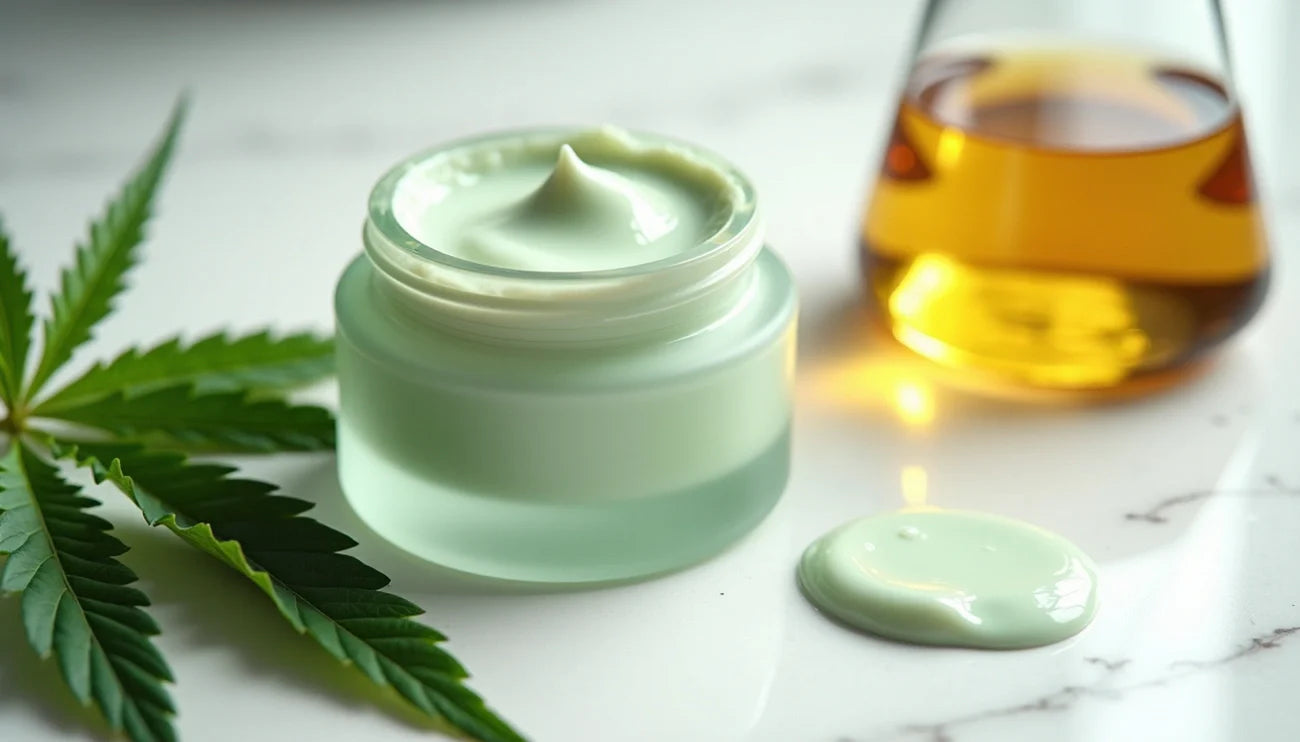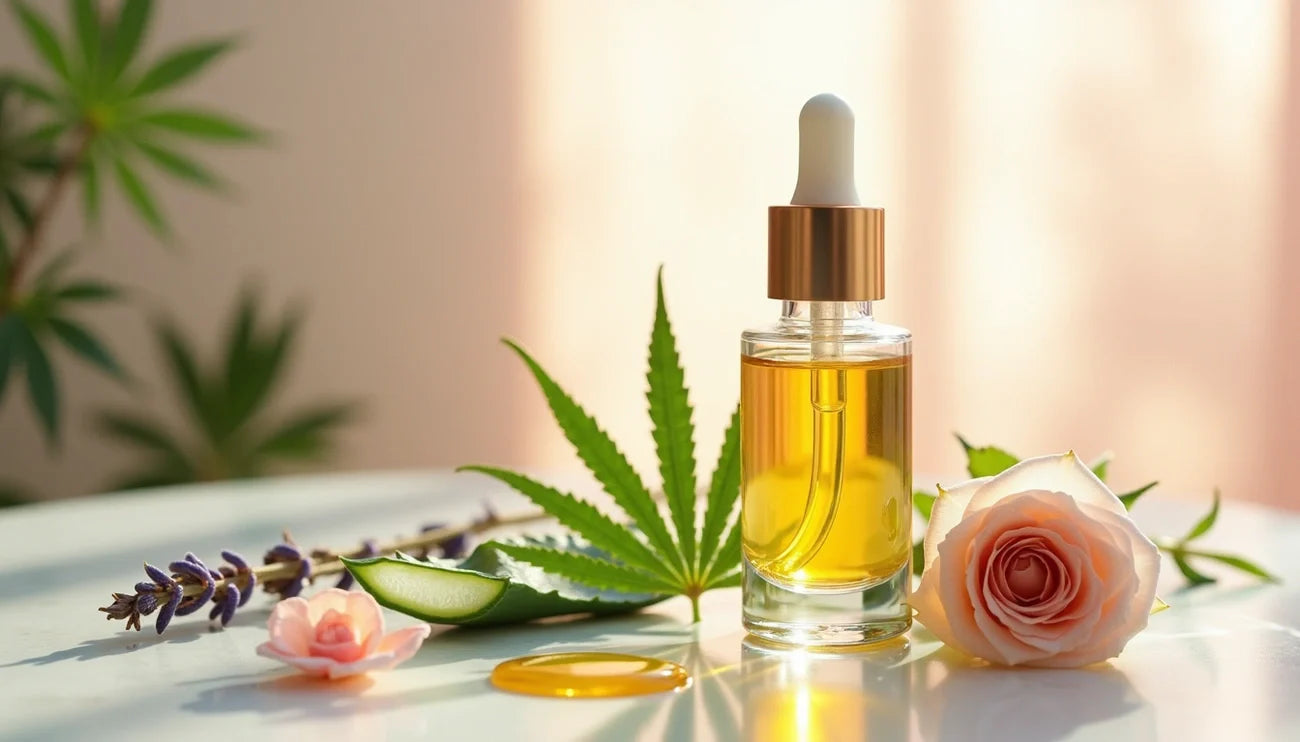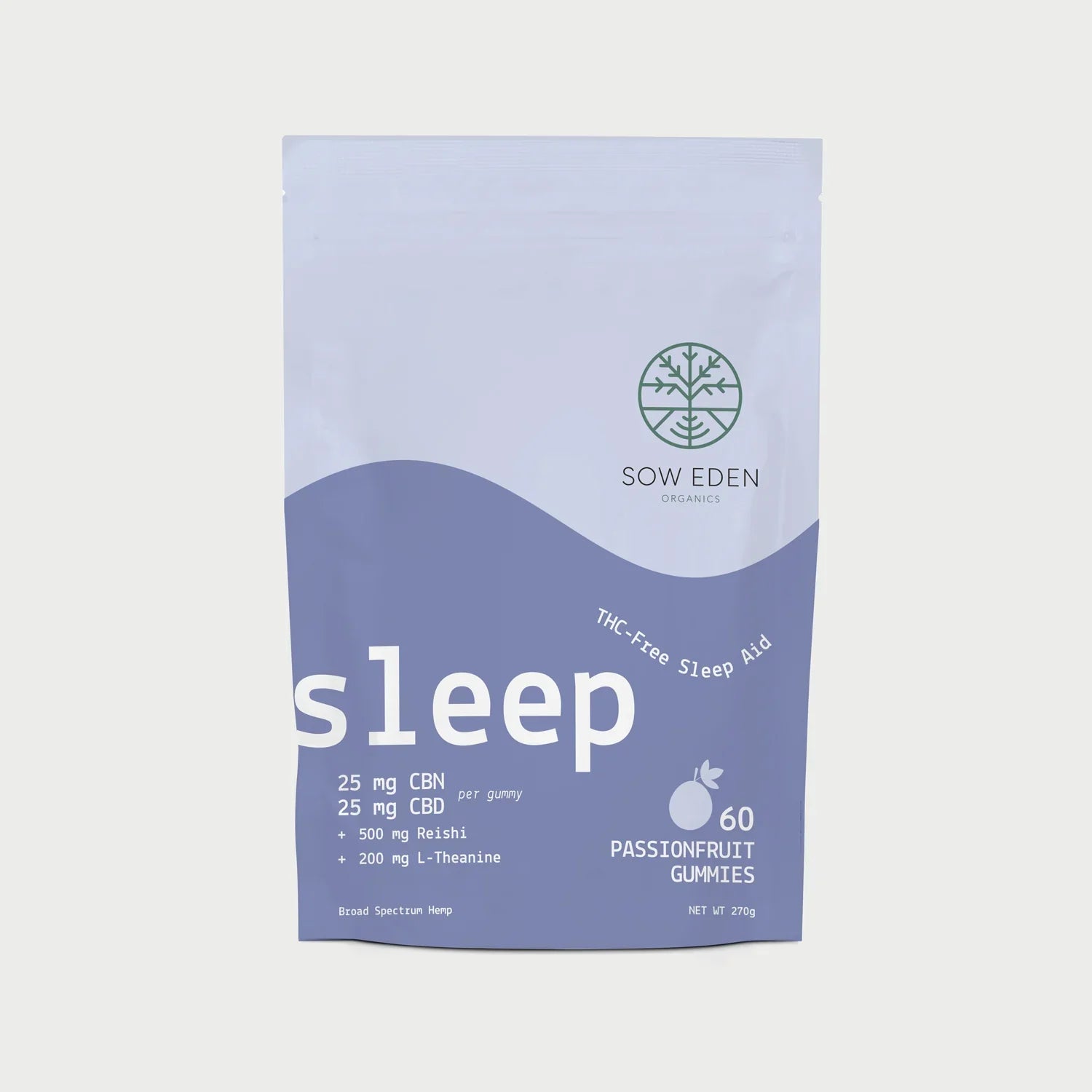CBD skincare products have become incredibly popular. Research shows that 26% of CBD products contain less than the labeled amount, while 42% contain more than advertised. Many bottles, jars, and tubes promise amazing results, but scientific evidence tells a different story.
Research indicates that CBD can help hydrate skin and may have anti-inflammatory properties. The compound might also help reduce wrinkles. A small study revealed that people who used a CBD-enriched ointment twice daily for three months saw reduced inflammation. Before you spend money on these products, you should know exactly what they can do.
We'll look beyond the marketing claims to show you what CBD skincare really offers. You'll learn how CBD works with your skin, what realistic benefits to expect, and how to choose the right products in this fast-growing market.
What is CBD and why is it in skincare?
CBD, or Cannabidiol, has become a popular ingredient in skincare products. This natural compound comes from the Cannabis sativa plant, mostly from industrial hemp varieties with minimal THC content. CBD provides potential skincare benefits without the psychoactive effects that you'd get from its well-known relative THC (tetrahydrocannabinol).
Understanding the difference between CBD and THC
CBD and THC have similar molecular structures. Both contain 21 carbon atoms, 30 hydrogen atoms, and 2 oxygen atoms, but their arrangement is different by a lot. This small change explains why THC makes you feel high while CBD doesn't. Hemp-derived CBD products are legal in many countries because they contain less than 0.3% THC by dry weight.
The difference matters in skincare because CBD can benefit your skin without any mind-altering effects. People often think hemp seed oil products contain CBD. A survey showed that 64% of dermatologists didn't know CBD was non-psychoactive. This confusion shows we need better education about these ingredients.
How CBD interacts with the skin
Your skin has an endocannabinoid system (ECS) - a complex network of receptors in keratinocytes, mast cells, and nerve fibers. CBD doesn't bind strongly to the main cannabinoid receptors (CB1 and CB2) directly. Instead, it affects them in other ways.
CBD works right where you apply it without entering your bloodstream. It can help control oil production, lower inflammation, and shield your skin from environmental damage through its interaction with the skin's ECS. Research suggests CBD might boost skin moisture by increasing aquaporin-3 expression and raising ceramide levels.
Why beauty brands are embracing CBD
Beauty companies welcome CBD because it fights inflammation, acts as an antioxidant, and moisturizes skin effectively. The US market for hemp-derived CBD could reach $22 billion by 2022. This shows how much consumers want these products.
CBD lines up perfectly with the growing demand for clean, natural ingredients in beauty products. People want products that target specific skin issues, and CBD fits the bill - from soothing irritated skin to fighting aging signs. Full-spectrum CBD products are getting more popular because they contain all natural cannabis compounds, which might work better together through the "entourage effect".
What CBD may offer for your skin
Scientists have found several promising ways CBD can benefit your skin beyond the simple basics. Their ongoing research reveals this compound's diverse potential for skin health.
Hydration and moisture support
CBD can substantially improve your skin's moisture retention. Animal studies show that when applied topically, CBD increased skin water content 1.3 times more than control groups. This hydrating effect links to CBD's power to increase aquaporin-3 (AQP3) expression—a protein crucial for skin hydration.
The compound helps strengthen your skin barrier through multiple mechanisms. Studies indicate it stimulates sphingomyelinase activity, which boosts ceramide levels that reinforce the epidermis and lock in moisture. People who look for the best CBD for skincare often see noticeable results with hydration-focused products.
Soothing potential for redness and irritation
CBD's anti-inflammatory properties make it valuable for irritated skin. Clinical evidence shows it soothes conditions marked by redness and irritation. CBD works through several pathways to reduce inflammation and suppresses inflammatory cytokines like TNF-α, IL-1β, and IL-6.
A small clinical study showed that participants who used CBD-enriched ointment saw substantial improvements in skin hydration and elasticity. These benefits likely come from CBD's interaction with the endocannabinoid system in skin cells.
Antioxidant properties and skin aging
CBD proves more powerful as an antioxidant than vitamins C and E. This strength matters because antioxidants help curb DNA damage from UV exposure and pollution.
Research shows CBD protects skin cells from oxidative stress by lowering reactive oxygen species generation. It activates nuclear factor erythroid 2-related factor 2 (NRF2), which regulates antioxidant responses. Studies suggest CBD might reduce wrinkles and prevent them by speeding up skin cell growth.
Sebum regulation and acne-prone skin
CBD shows remarkable promise in its effect on sebum production. Lab research shows CBD stops excessive lipid synthesis in sebocytes while maintaining normal levels. This normalizing effect, rather than simple reduction, makes it especially valuable.
CBD suppresses sebocyte proliferation by activating transient receptor potential vanilloid-4 (TRPV4) ion channels. Its anti-inflammatory properties also address a crucial factor in acne development by reducing pro-inflammatory signals.
What beauty brands don’t always tell you
CBD skincare's glamorous marketing masks a complex reality. Smart shoppers should know what they're getting into with this emerging market.
Lack of standardization in CBD skin care products
Quality standards don't exist yet in the CBD skincare industry. These products don't face the same strict oversight as pharmaceuticals. Product quality varies widely between brands.
Variability in CBD concentration and labeling
Labels often tell a different story from what's inside the jar. Lab tests show that 26% of CBD products pack less CBD than advertised. Another 42% contain more CBD than stated on the label. Results become hard to predict with such inconsistency.
The role of other ingredients in product effectiveness
People credit CBD alone for results that other ingredients help create. Your CBD product's benefits might come from hyaluronic acid, vitamin C, or retinol. Notwithstanding that, these added ingredients could help realize CBD's full potential.
Why some products may contain THC
Brands add small amounts of THC (under 0.3%) to full-spectrum CBD products on purpose. This creates the "entourage effect" where cannabis compounds work together through cooperative action. Many brands fail to explain how this differs from broad-spectrum or CBD isolate products. This matters especially to people who face drug tests or have THC sensitivities.
What to know before trying CBD skincare
Ready to try CBD skincare products? You need some preparation before exploring this growing market.
How to read CBD product labels
The ingredient list needs careful examination. Look specifically for "cannabidiol" or "CBD" rather than just "hemp seed oil," because hemp seed oil contains virtually no CBD. The concentration (mg/mL) determines the product's potency. A 2,000 mg CBD oil at 40 mg/mL differs significantly from a 300 mg gummy package with 30 pieces that provides only 10 mg each.
Quality products include a Certificate of Analysis (COA) that's available through a QR code or website. Third-party testing verifies CBD content, which is significant since studies show only 31% of CBD products have accurate labels.
Patch testing and skin sensitivity
Your face needs protection before applying any CBD product. A simple patch test on a discrete area of skin helps detect reactions within 24 hours. New products should be introduced one at a time. Use each product for several weeks before adding another.
Talking to a dermatologist
A dermatologist's consultation helps people with existing skin conditions. These professionals offer customized advice about adding the best CBD for skincare to your routine. They can determine if CBD products match your skin's needs based on your specific concerns.
Final Thoughts
CBD skincare has emerged as a game-changer in beauty products with benefits that go beyond traditional ingredients. Studies indicate CBD might enhance skin hydration, reduce irritation, combat oxidative damage, and regulate oil production. The CBD skincare market is still young and lacks proper regulation.
Smart buyers should look at CBD products with equal parts interest and skepticism. Label reading helps you identify genuine cannabidiol products instead of basic hemp seed oil. Companies that invest in third-party testing show their steadfast dedication to transparency, which matters a lot given the current labeling variations in the industry.
Your skin needs care tailored to its specific needs. New CBD products should be patch tested first, and a dermatologist's advice helps before you make major changes to your skincare routine. CBD shows great potential, but these products often work well because they mix cannabidiol with other proven skincare ingredients.
CBD's role in beauty continues to grow as new research emerges and regulations take shape. CBD skincare products are a great way to get benefits like hydration, calming effects, or antioxidant protection when selected carefully. This piece gives you the knowledge to make smart choices about adding CBD to your skincare routine while staying realistic about what these products can do.




